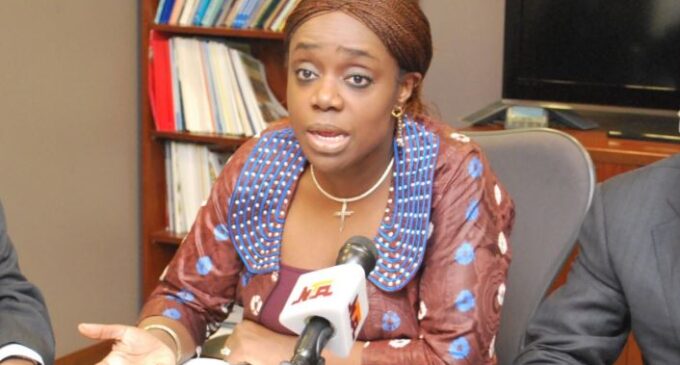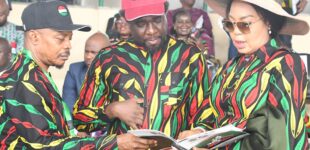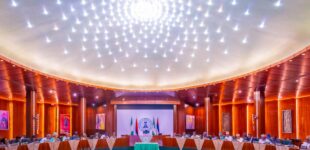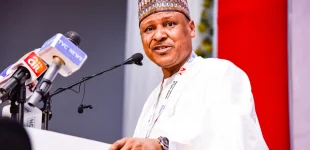The billions Adeosun’s efficiency unit has saved Nigeria

BY JOE CHIDI
“Our country, right or wrong. When right, to be kept right; when wrong, to be set right.” — Carl Schurz
A lot of controversies have trailed the federal government over the years in terms of how the nation’s resources have been spent. The nation has seen outrageous amounts apportioned to non-capital projects while the infrastructure deficit widened. Often times than not, the people of the nation have expressed their displeasure and dissatisfaction over how the nation’s funds are being expended on what could be tagged ‘frivolities’ or ‘non-essentials’.
However, the present administration, under the leadership of President Muhammadu Buhari was dedicated to putting a stop to all forms of unnecessary spending in the government. It was on this note that Mrs. Kemi Adeosun, the Honourable Minister of Finance secured approval to create the Efficiency Unit in November 2015 under the Federal Ministry of Finance.
Given the extensive scope of its mandate and the urgent need for the government to spend its financial resources more judiciously, the E-Unit is supervised by a Steering Committee chaired by the Honourable Minister of Finance. Other members are heads of key public sector institutions namely the Head of the Civil Service of the Federation, Accountant-General of the Federation, and Auditor-General for the Federation, as well as experienced private sector persons including Mr. Kunle Elebute -National Senior Partner KPMG and Alhaji Kabir Mohammed, MFR-Past President of the Institute of Chartered Accountants of Nigeria. Others are Mr. Oluseyi Kumapayi -Chief Financial Officer Access Bank Plc, Mr. Adebanji Adeniyi -Chief Financial Officer Guaranty Trust Bank Plc and Mrs. Folake Ani-Mumuney -Group Head, Marketing and Corporate Communications, First Bank Nigeria Ltd. The Unit is headed by Patience Oniha, a seasoned professional who has previously held top positions in the banking sector and the public service.
The Efficiency Unit was saddled with the responsibility of ensuring that all government overhead expenditure are necessary and represent the best possible value for money by eliminating leakages, wastages and promoting transparency. This includes overhead expenditure on travel, training, printing, IT consumables and stationeries among others. The other component of its mandate is to identify best practices in procurement that will translate to savings for the government.
Since its creation, how well has this Unit delivered on its mandate? Have they really lived up to expectation? So far, the Unit has been able to pursue its mandate effectively. Within a short period of about 12 months the Unit mapped out its strategies for delivering tangible results to Nigerians and has already implemented some.
One of its immediate actions upon reviewing the Overhead Expenditure of the Federal Government for prior years was to recommend controls and limits on spending on items such as Travels, Training, Welfare, Honourarium and Sitting Allowance, Meals and Refreshments, as well as Adverts and Publicity where unjustifiably large amounts were expended annually. Working with the Office of the Secretary to the Government of the Federation and the Head of the Civil Service of the Federation a total of Six (6) Circulars have been issued to moderate costs and introduce standards for all MDAs. The first amongst the Circulars was on Travels where the government spent an average of N83 billion annually or over 18% of the total Overhead Expenditure in prior years. Nigerians had watched over the years as public officials criss-crossed the world for meetings and conferences which were either of little relevance, could have been handled by smaller delegations or through the use of ICT. The Circulars issued by the Secretary to the Government of the Federation and Head of Service on Travels preclude public officials from travelling First Class and further restricted the number of persons who can travel by Business Class to only Heads of MDAs and Chairmen of Boards of Government Agencies and Parastatals. Through these Circulars initiated by the Efficiency Unit, this avenue for wastage has been blocked. The estimated savings from this initiative is over N10 billion yearly. Also, foreign travels for training have been curtailed by a Circular from the Head of Service re-affirming its position that public servants are only allowed to travel for foreign training if all costs will be borne by the course organizers.
It is common knowledge that the government has many agencies and parastatals and considerations have been given in the past on how to streamline them. What was not widely known was that in 2011, Sitting Allowance for Federal Boards and Committees was increased while the frequency of payment was doubled from 4 to 8 times. In the light of the availability of various ICT facilities for meetings, which are more cost-efficient, the E-Unit recommended a reduction of 50% in the frequency of payment of Sitting Allowance to 4 and a Circular was issued by the Secretary to the Government of the Federation to that effect to all MDAs. The savings from this action excluding savings on other costs associated with Board and Committee Meetings such as estacode/per diem, meals, refreshments etc is about N1 billion per annum.
Another area of non-priority spending by MDAs which was identified for curtailment by the Efficiency Unit was on souvenirs such as T-Shirts, Face-Caps, folders etc and printing of short lived or non-essential publications. Nigerians and the economy will be better-off if such spending is deployed to roads, education, health etc. which is the direction the administration of President Muhammadu Buhari is pursuing.
The E-Unit has also helped to cut costs for the benefit of the larger Nigerian populace on spending by MDAs on meals and refreshments at meetings, seminars, workshops, etc, where on the recommendation of the E-Unit the Head of Service issued a Circular imposing limits per person for Tea Break, Lunch and Dinner. Prior to this Circular, such limits where they existed at all were at the discretion of each MDA. Savings to government from this initiative alone has been put at about N1 billion annually.
Considering the complex nature of large bureaucracies such as the Nigerian Public Service, the ability of the E-Unit to secure the release of 6 Circulars within a short space of its operation is commendable. The drive for the issuance of other Circulars on items such as Welfare, Honourarium and Adverts and Publicity which the Unit indicated it is working on should be sustained.
Another tool to be deployed for plugging loopholes and improving accountability in spending by government officials on small to medium transactions with high turnover that are often procured using Cash Advance or Imprest are Debit Cards. Work has reached an advanced stage on this initiative. Also, the Unit has made a proposition that some government agencies be relocated to buildings forfeited to government to reduce expenditure on Rent. Some progress has been made in this area.
The positive results recorded by the Unit in cost cutting were also extended to the other aspects of its mandate which have to do with procurement. In this case the Unit has engaged the Bureau of Public Procurement specifically to reduce the administrative costs associated with the subsisting procurement process and institutionalize a wholesale procurement process where MDAs can pool their demands for standard goods and benefit from price discounts. The E-Unit and the BPP are working on a Circular to MDAs that will guide the operation of the initiative. In the meantime, within a short period, the Unit secured discounts of 5-50% from 19 local and international airlines with a potential savings to government of about N5 billion on air travels. The Agreement with Dana, one of the airlines was signed recently and is expected to become operational in April 2017.
Since the mandate of the Unit inherently involves changes in the ways MDAs operate, the Unit embarked on a massive sensitization programme to create awareness about its creation and activities and to secure the buy-in of stakeholders. For wider dissemination, the Unit also engaged with the Media. In addition to the sensitization and Cost Management Workshops organized for top and senior officials of MDAs and other government establishments such as the Judiciary, National Assembly and the Presidency, the E-Unit engaged with State Governments to assist them in setting up their own Efficiency Units. The engagement with the States which it expects to continue is in the interest of improving the management of funds by all tiers of government towards a better Nigeria.
It is expected that in 2017, the E-Unit will complete its on-going initiatives and additional ones which have already been identified.
One job well done can be redemption for many mistakes of the past. The creation of the Efficiency Unit by the current administration has ensured that the government’s financial resources are allocated in a manner that prioritise spending on capital projects which is necessary for development, while also achieving transparency and prudence in the use of its limited resources. This has the potential for introducing other reforms in the public sector for public good.
Chidi writes from Port Harcourt.
Views expressed by contributors are strictly personal and not of TheCable.











There are no comments at the moment, do you want to add one?
Write a comment